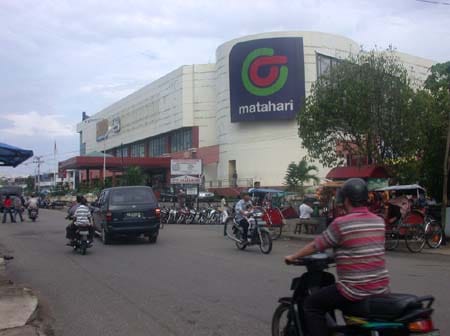Heaptalk, Jakarta — Matahari department stores reportedly closed its stores in Mall Balaikota and WTC Serpong due to its poor sales performances.
According to Matahari’s management on Wednesday (03/07), the closure of these outlets was driven by the shift of society’s shopping habbit, especially in big cities, which prefer to shop online. Moreover, the weakening of grassroot’s purchase power and the tonnes of illegally imported goods also worsen this condition.
“Today, department store business is very related to the people’s lifestyle who dynamically change, thus retailer is required to respord this lifestyle quickly,” stated Matahari’s management.
They added, “This decision is taken after thorough evaluation which is align with our long term business strategy and SOP”.
The Chairman of Indonesia Department Store Management Association (APPBI) Alphonzus Widjaja responded to this issue. He revealed that the closure of retail stores will not be happened if the government put serious effort to handle illegal import goods.
“Although we have discussed it back and forth to the Ministry of Trade to amend its regulation, the illegal goods stay easily enter Indonesia. A serious effort is needed to handle this,” stated Alphonzus.
He perceived that retailer or stores who are not able to respond this shift will compete directly with e-commerce or online shopping and their businesses will be left by their customers gradually.
The condition of department store business start to increase in the post covid. All indicators demonstrated positive result, such as the the increase in visitor rate of 100% compares to the covid-19 era.
The occupancy also reaches 80%, enhancing significantly compares the occupancy during the covid-19 who only attain 70%. The visitor duration rate also jump from one hour to two hours.
“The weakening of people purchase power affects grass roots significantly, for this reason the Government is expected to not release any regulation which worsen the situation, such as Tapera, the VAT enhancement from 11% to 12%, and other regulations which ptentialy weaken grassroot’s purchasing power,” concluded Alphonzus. (Hs.Foto: Matahari)











